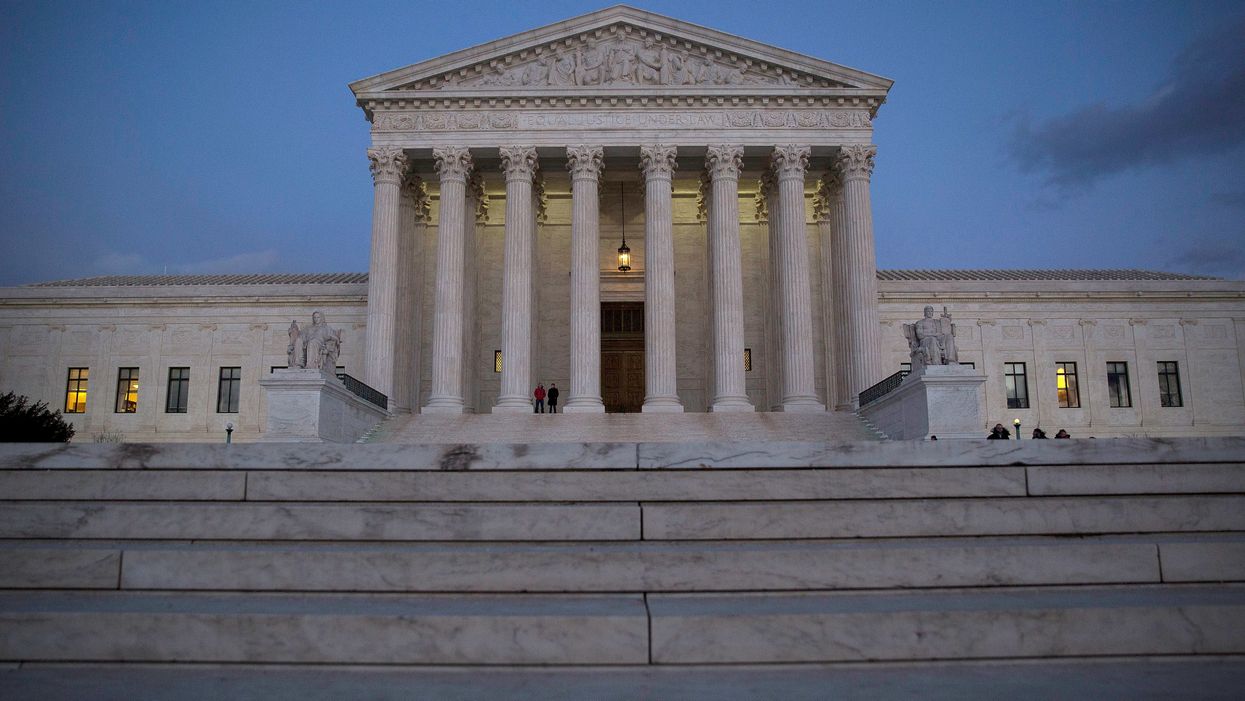The Supreme Court appeared ready on Tuesday to permit a citizenship question on next year's census, which no one doubts will lead to a national population count that's inaccurate by several million.
The fight over the 2020 census questionnaire is enormously important to those wanting to bolster the federal government's functionality. That's not only because the outcome will affect the apportionment of congressional seats and the allocation of hundreds of billions of federal dollars for an entire decade, but also because it could alter the balance of federal power for even longer.
The frequent partisan divide on the court became increasingly clear during 80 minutes of oral argument.
All five of the justices nominated by Republican presidents, by virtue of their questioning and past writings, seemed likely to conclude President Trump has broad enough executive power to conduct the census as he sees fit, especially because Congress has not asserted its power to prevent the citizenship question with legislation.
The four justices picked by Democratic presidents seemed united against allowing the question in light of the certainty of a significant undercount.
The Census Bureau believes asking each census respondent to reveal citizenship status will lead to 6.5 million fewer responses, specifically in noncitizen and Hispanic households, because people will fear reprisal from a Trump administration preoccupied with cracking down on illegal immigration. That figure represents almost 2 percent of the national total, which the government estimates as 329 million people today.
Solicitor General Noel Francisco acknowledged the question would depress responses to the census, a constitutionally mandated "enumeration" of anyone living in the United States at the start of each decade — whether they're citizens, green card-holders or undocumented immigrants.
Francisco argued the question was worth the sacrifice to help the Justice Department better enforce protections under the Voting Rights Act — the underlining reason Commerce Secretary Wilbur Ross last year ordered the addition of the question. Citizenship status along with other demographic inquiries were removed from census questionnaires in 1960 to boost response rates.
"It's always a trade-off between information and accuracy," Francisco said.
The liberal justices weren't swayed, focusing on the dangers of introducing a question that was guaranteed to produce a more inaccurate census.
"There's no doubt people will respond less," Justice Sonia Sotomayor said, citing the government's estimates.
Justice Elena Kagan said "I don't see any reason why" Ross decided to reject the advice of the Census Bureau, an arm of his department, which recommended choosing a number of other less expansive, more accurate methods of gathering citizenship data that wouldn't jeopardize response rates.
The conservative justices appeared deferential to Ross' authority, skeptical of the Census Bureau's undercount warnings and, at times, almost annoyed Congress hadn't intervened — as happened in 1976, when it prohibited the census from asking a mandatory question about each respondent's religious belief.
"There could be multiple reasons" why people don't complete a census, Justice Neil Gorsuch said, downplaying the bureau's concerns and echoed by Justice Samuel Alito.
Justice Brett Kavanaugh, on the other hand, noted that the United Nations recommends that countries include citizenship status in their censuses and that such questions were standard until six decades ago.
Chief Justice John Roberts wondered why Congress hadn't taken action if the situation was so dire. Douglas Letter, representing the House of Representatives, which opposes asking the question, said lawmakers have no choice but to await the court's decision.




















Trump & Hegseth gave Mark Kelly a huge 2028 gift